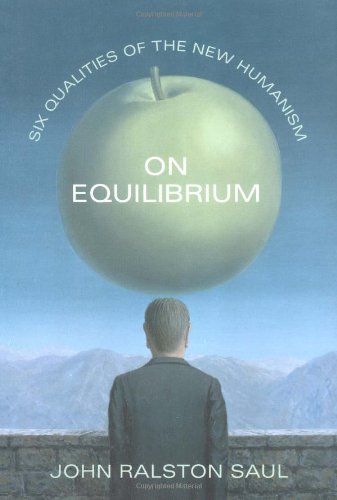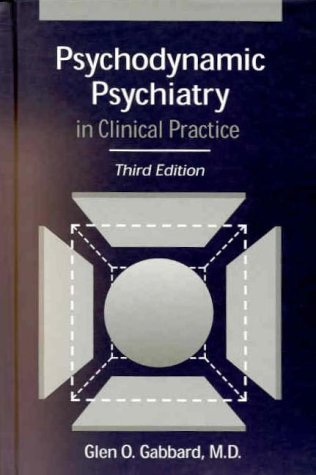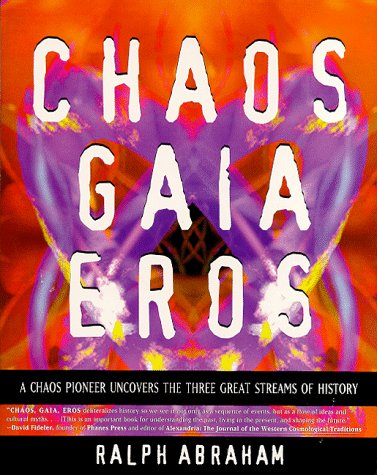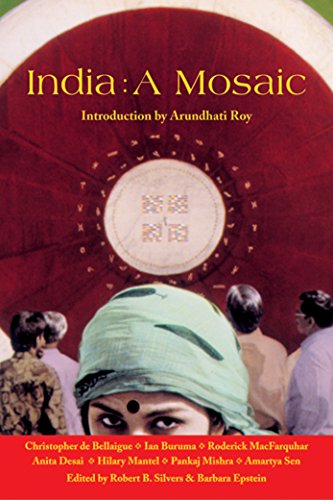Recent Non Fiction
Explore our curated list of recent non-fiction books, featuring top titles across genres like history, science, and self-improvement. Find your next great read today!

Book
On Equilibrium
by John Ralston Saul
Is it moral to sacrifice one's life for a higher goal? Why do many in the U.S. think it admirable to join the army but despicable for Palestinians to sign up with Hamas? How can we actually determine "evil" and "good" in the daily world? These practical questions cut to the heart of what it means to be human. John Ralston Saul, in his matter-of-fact discussion of six basic human qualities — ethics, common sense, intuition, imagination, memory, and reason — confronts basic concepts in a manner not done since Thomas Paine more than two centuries ago. In an easy-to-understand style, Saul explains why essential qualities of being human cannot exist in isolation but instead depend on and enrich each other. On Equilibrium persuasively explores morality and how it can be used to foster equilibrium for the self and achieve an ethical society.


Book
Psychodynamic Psychiatry in Clinical Practice
by Glen O. Gabbard
Discusses the basic theoretical principles of dynamic psychiatry and the major treatment modalities, including individual psychotherapy, group psychotherapy, family/marital therapy, pharmaco-therapy, and dynamically informed hospital treatment, and applies the principles and therapeutic approaches to the major Axis I and Axis II disorders in DSM-III-R. Annotation copyrighted by Book News, Inc., Portland, OR

Book
Autobiography of a Yogi
by Yogananda (Paramahansa)
Paramahansa Yogananda's remarkable life story takes you on an unforgettable exploration of the world of saints and yogis, science and miracles, death and resurrection.

Book
The Age of Spiritual Machines
by Ray Kurzweil
NATIONAL BESTSELLER • Bold futurist Ray Kurzweil, author of The Singularity Is Near, offers a framework for envisioning the future of machine intelligence—“a book for anyone who wonders where human technology is going next” (The New York Times Book Review). “Kurzweil offers a thought-provoking analysis of human and artificial intelligence and a unique look at a future in which the capabilities of the computer and the species that invented it grow ever closer.”—BILL GATES Imagine a world where the difference between man and machine blurs, where the line between humanity and technology fades, and where the soul and the silicon chip unite. This is not science fiction. This is the twenty-first century according to Ray Kurzweil, the “restless genius” (The Wall Street Journal), “ultimate thinking machine” (Forbes), and inventor of the most innovative and compelling technology of our era. In his inspired hands, life in the new millennium no longer seems daunting. Instead, it promises to be an age in which the marriage of human sensitivity and artificial intelligence fundamentally alters and improves the way we live. More than just a list of predictions, Kurzweil’s prophetic blueprint for the future guides us through the inexorable advances that will result in: • Computers exceeding the memory capacity and computational ability of the human brain (with human-level capabilities not far behind) • Relationships with automated personalities who will be our teachers, companions, and lovers • Information fed straight into our brains along direct neural pathways Eventually, the distinction between humans and computers will have become sufficiently blurred that when the machines claim to be conscious, we will believe them.

Book
Basic Economics 2nd Ed
by Thomas Sowell
Outlines the principles behind each major type of economy including capitalist, socialist, and feudal, in terms of the incentives each creates.

Book
Chaos, Gaia, Eros
by Ralph Abraham
Chaos pioneer Ralph Abraham traces the history of consciousness through a rediscovery of three driving forces, chaos, gaia, and eros--the mind, body, and spirit of evolution. With startling originality and clarity of vision, Abraham employs photographs, timelines, charts, and an engaging format to sweep the reader along on a wild ride through the whole of history--blowing the doors off existing modes of thought.

Book
The Clash of Civilizations and the Remaking of World Order
by Samuel P. Huntington
Based on the author's seminal article in Foreign Affairs, Samuel P. Huntington's The Clash of Civilizations and the Remaking of World Order is a provocative and prescient analysis of the state of world politics after the fall of communism. In this incisive work, the renowned political scientist explains how "civilizations" have replaced nations and ideologies as the driving force in global politics today and offers a brilliant analysis of the current climate and future possibilities of our world's volatile political culture.

Book
The Elegant Universe
by Brian Greene
Introduces the superstring theory that attempts to unite general relativity and quantum mechanics

Book
God Talks with Arjuna
by Paramhansa Yogananda
Exploring the "Bhagavad Gita's" psychological, spiritual, and metaphysical depths, Paramahansa Yogananda reveals the innermost essence of this majestic scripture, presenting an unparalleled translation of and commentary on one of the most revered scriptures of the ages.


Book
Hell's Angels
by Hunter S. Thompson
Gonzo journalist and literary roustabout Hunter S. Thompson flies with the angels—Hell’s Angels, that is—in this short work of nonfiction. “California, Labor Day weekend . . . early, with ocean fog still in the streets, outlaw motorcyclists wearing chains, shades and greasy Levis roll out from damp garages, all-night diners and cast-off one-night pads in Frisco, Hollywood, Berdoo and East Oakland, heading for the Monterey peninsula, north of Big Sur. . . The Menace is loose again.” Thus begins Hunter S. Thompson’s vivid account of his experiences with California’s most notorious motorcycle gang, the Hell’s Angels. In the mid-1960s, Thompson spent almost two years living with the controversial Angels, cycling up and down the coast, reveling in the anarchic spirit of their clan, and, as befits their name, raising hell. His book successfully captures a singular moment in American history, when the biker lifestyle was first defined, and when such countercultural movements were electrifying and horrifying America. Thompson, the creator of Gonzo journalism, writes with his usual bravado, energy, and brutal honesty, and with a nuanced and incisive eye; as The New Yorker pointed out, “For all its uninhibited and sardonic humor, Thompson’s book is a thoughtful piece of work.” As illuminating now as when originally published in 1967, Hell’s Angels is a gripping portrait, and the best account we have of the truth behind an American legend.

Book
On War
by Carl von Clausewitz
Presents the Prussian soldier's classic work analyzing the nature of war and the conditions which require it. Bibliogs

Book
A Problem from Hell
by Samantha Power
Winner of the 2003 Pulitzer Prize For General Nonfiction National Book Critics Circle Award Winner In her award-winning interrogation of the last century of American history, Samantha Power -- a former Balkan war correspondent and founding executive director of Harvard's Carr Center for Human Rights Policy -- asks the haunting question: Why do American leaders who vow "never again" repeatedly fail to stop genocide? Drawing upon exclusive interviews with Washington's top policy makers, access to newly declassified documents, and her own reporting from the modern killing fields, Power provides the answer in "A Problem from Hell" -- a groundbreaking work that tells the stories of the courageous Americans who risked their careers and lives in an effort to get the United States to act.

Book
Six Days of War
by Michael B. Oren
In 1967 the future of the state of Israel was far from certain. But with its swift and stunning military victory against an Arab coalition led by Egypt in the Six Day War, Israel not only preserved its existence but redrew the map of the region, with fateful consequences. The Camp David Accords, the assassinations of Anwar Sadat and Yitzhak Rabin, the intifada, and the current troubled peace negotiations--all of these trace their origins to the Six Day War.Michael Oren's Six Days of War is a gripping account of one of the most dramatic and important episodes in the history of the Middle East. With exhaustive research in primary sources--including Soviet, Jordanian, and Syrian files not previously available--he has reconstructed the tension-filled background and the dramatic military events of the conflict, drawing the threads together in a riveting narrative, enlivened by crisp characters sketches of major characters (many of whom, from Ariel Sharon to Yasser Arafat, are still leading figures today). Most important, Oren has unearthed some dramatic new findings. He has discovered that a top-secret Egyptian plan to invade Israel and wipe out its army and nuclear reactor came within hours of implementation. He also reveals how the superpowers narrowly avoided a nuclear showdown over the Eastern Mediterranean and how a military coup in Israel almost occurred on the eve of the war.

Book
The White Album
by Joan Didion
Essays on the author's experiences with American culture in the 1960s and 1970s.

Book
Who Killed Daniel Pearl?
by Bernard Henri Lévy
An investigation into the murder of Wall Street Journal correspondent Daniel Pearl asserts that Pearl was murdered not necessarily because he was an American or Jewish, as previously assumed, but because he had uncovered links between al-Qaida terrorists and the Pakistani government.

Book
Globalization and Its Discontents
by Joseph E. Stiglitz
Rarely do we get such an insider's analysis of the major institutions of globalization as in this penetrating book.

Book
The Great Crash, 1929
by John Kenneth Galbraith
An examination of the stock market crash of 1929.

Book
The European Dream
by Jeremy Rifkin
Rifkin delves deeply into the history of Europe--and eventually America--to show how Europeans have succeeded in slowly and steadily developing a more adaptive, sensible way of working and living.

Book
Leo Strauss and the Politics of American Empire
by Anne Norton
This provocative book examines the teachings of political theorist Leo Strauss and the ways in which they have been appropriated, or misappropriated, by senior policymakers.

Book
India
by Robert B. Silvers
How can we understand India today, fifty years after Independence and only months after its nuclear tests outraged the world? The novelist Arundhati Roy has written, specially for this collection, a fierce denunciation of the Indian nuclear program, which serves as an introduction to nine essays on India, all originally published in The New York Review of Books. In this volume, seven distinguished writers offer penetrating insights into the complexities of the subcontinent. Roderick MacFarquhar reflects on the legacy of Empire and Partition, Ian Buruma considers secularism and Indian democracy, Pankaj Mishra remembers life in Benares, and Christopher de Bellaigue writes on a violent Bombay. But the volatile intersections of history, politics, and culture on which they focus haunt Indian literature too, as shown in essays by Nobel Prize-winner Amartya Sen on Rabindranath Tagore, Hilary Mantel on Rohinton Mistry, and Anita Desai on Indian women's writing.

Book
Wittgenstein's Poker
by David Edmonds
On October 25, 1946, in a crowded room in Cambridge, England, the great twentieth-century philosophers Ludwig Wittgenstein and Karl Popper came face to face for the first and only time. The meeting -- which lasted ten minutes -- did not go well. Their loud and aggressive confrontation became the stuff of instant legend, but precisely what happened during that brief confrontation remained for decades the subject of intense disagreement. An engaging mix of philosophy, history, biography, and literary detection, Wittgenstein's Poker explores, through the Popper/Wittgenstein confrontation, the history of philosophy in the twentieth century. It evokes the tumult of fin-de-siécle Vienna, Wittgentein's and Popper's birthplace; the tragedy of the Nazi takeover of Austria; and postwar Cambridge University, with its eccentric set of philosophy dons, including Bertrand Russell. At the center of the story stand the two giants of philosophy themselves -- proud, irascible, larger than life -- and spoiling for a fight.